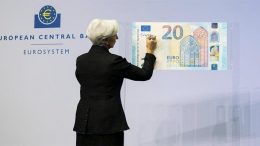The ECB Needs To Increase PEPP At Least €350-400 Bn
Gilles Moëc (AXA IM) | Although purchases through the Pandemic Emergency Purchase Programme(PEPP) have retreated from the peak at 8.5bn per day at the beginning of May, the latest pace is still consistent with all the €750bn being spent by the end of September, while the ECB has pledged to maintain it until at least the end of the year. Mechanically, the ECB would need to “top it up” by at least €350-400bn –i.e. to bring it above the symbolic level of 1 trillion euros –to be comfortable until December.










